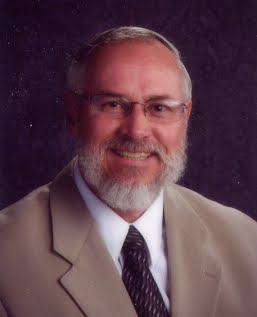Rwbyr Alfars
David Oughton, an associate professor of world religions at Saint Louis University, was part of a huge number of interfaith dialogues over the past 30 years.
Out of this vast experience, Oughton managed to develop a clear view of the role religious fanaticism played over the ages in instigating wars.
Wars, he believes, are always started by fanatics and then completed by politicians.
Oughton is a member of a large number of organizations caring primarily about interfaith dialogue. His academic and day-to-day experiences helped him view events taking place in a number of volatile areas as well as the wars and violence raging on everywhere, assuming a religious nature, clearly.
- Sir, can you tell us how did you use your academic study and membership in a number of organizations in making such a distinguished interfaith dialogue record?
At the academic level, I obtained my PhD in theology with a focus on making peace and collective action. Relations between religion and peace, on one hand, and religion, wars and collective action, on the other, were always intriguing issues to me. I participated in many interfaith dialogues between religious leaders. I also became a member of many organizations focusing on the issue of interfaith dialogue, including the Holocaust Museum, the Parliament of the World’s Religions and many other bodies that work to better understand the others and know them.
- What is the Parliament of the World’s Religions?
The parliament was founded in Chicago and convened for the first time in 1893. It was like an international celebration where the representatives of the world’s religions were represented equally. As they sat together, these representatives discussed one important issue: How could the world get rid of wars? However, soon after the parliament convened, World War I erupted, leaving 20 million people dead. World War II erupted later, leaving 50 million people dead. These two devastating wars were followed by 70 others. The parliament then convened again in 1993, 100 years after it convened for the first time. This time 10,000 people attended the session. They said we would not wait for another 100 years, which was why they agreed to meet every five or six years. I eventually attended this session of the parliament. In 1999, the parliament convened in Cape Town, South Africa, and then in Barcelona, Spain, in 2004, in Australia in 2009 and finally in Utah, the US, in 2015. All religions are represented in the parliament. It cares first and foremost about preventing wars that erupt because of religions.
- Why do the so many interfaith dialogue events held everywhere in the world seem to have little effect?
My academic study and life experiences helped me determine five important rules for the success of interfaith dialogue. The dialogue cannot make any success in the absence of these rules. These rules are as follows:
- – Those meeting for the dialogue must agree to disagree, without fighting against or harming each other. Unfortunately, this is something many of those meeting for the dialogue have not reached so far.
- – Those meeting for the dialogue must have the ability to understand the issues over which they disagree with others. This can only be achieved through the study of religions and their texts. They must understand why others stick to their beliefs, even as they do not agree with them.
- – Cooperation, or more specifically how those meeting can cooperate with each other, even as they hold different points of view.
- – Appreciating things by making a creative exchange of valuable things in the different religions. Those meeting for the dialogue should view other people’s religions through the ideals of those religions, not through the conduct of the followers of those religions.
- – Those meeting for the dialogue need to always remember that they are human beings after all. This brings us back to the first rule.
- But why do interfaith dialogues always fail?
They always fail because some people mix dialogue with debate. In debates, folks always work to prove their point view correct and the point of view of others wrong. In dialogues, however, I try to prove my point of view correct and the point of view of the others correct too. In them, people work to learn from each other. When there is a meeting of religious leaders, this meeting must be a dialogue, not a debate.
- Why do religions always cause wars to erupt?
Because religions can teach their followers that others are bad. Religious fanatics always start the wars. Then, politicians use the rhetoric of the fanatics to impose a certain religion or sect. Wars always aim to get rid of those their propagators think are bad.
- While some people call for interfaith dialogue, others call for the clash of civilizations. How do you view this matter?
Civilizations always change. They will inevitably morph into an international civilization, one instigated by Internet; cellphones; technology, and travel. We will reach the realization that we are human beings. We will reach a unified human civilization one day. But this will take years to happen.
- Are you optimistic with all the wars and conflicts raging on in the world now?
I am optimistic, especially if we all work hard to make change. Each religion should start an internal dialogue among all its sects and branches. Catholics and Protestants fought against each other for 500 years and now they are talking to each other and holding dialogue. This is a lesson Muslims also should learn. They should realize that there is an international law and those who violate this law are doomed to be punished by it.








































admin in: How the Muslim Brotherhood betrayed Saudi Arabia?
Great article with insight ...
https://www.viagrapascherfr.com/achat-sildenafil-pfizer-tarif/ in: Cross-region cooperation between anti-terrorism agencies needed
Hello there, just became aware of your blog through Google, and found ...